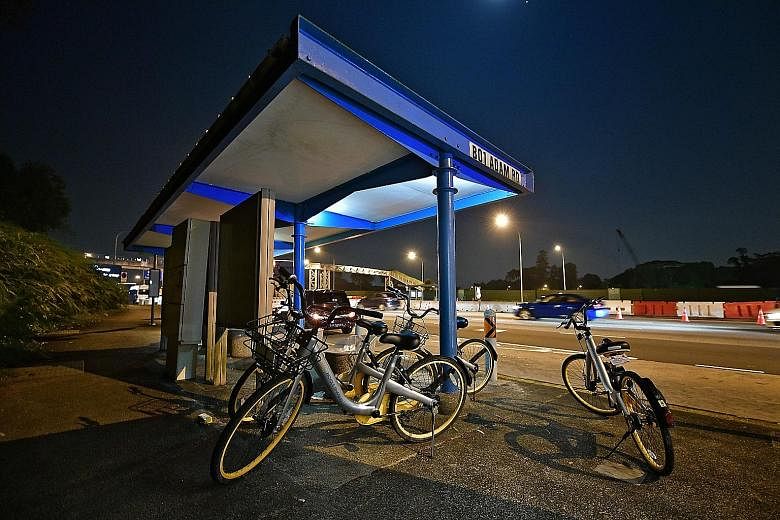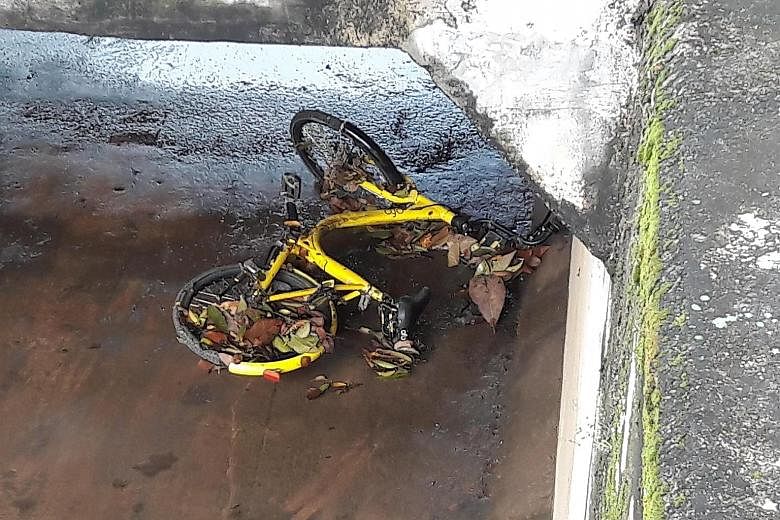Social media can be a powerful tool to call out bad behaviour in bike-sharing schemes, said experts such as Dr William Wan, general secretary of the Singapore Kindness Movement.
Since the launch of three such companies here this year - local venture oBike and China-based firms Mobike and ofo - photos of misused bikes have made the rounds online. Some were repainted or stashed outside flats, while others were trashed in locations such as canals.
Last Tuesday, ofo lodged a police report over a video of a teenager throwing and stomping on one of its bikes in the Geylang Bahru area.
"Social media is a powerful tool for calling out such bad behaviour," said Dr Wan, who added that one report could quickly trigger others.
In any society, he said, there will always be a small number who think only of themselves. Instead of relying on laws to curb bad behaviour, he believes in allowing individual users to "take ownership in making this community-sharing initiative work, through gracious and responsible behaviour".
The public should also help firms by calling out and discouraging any misuse they encounter, he said.
Sociologist Paulin Straughan said social media could also encourage positive behaviour. Last Wednesday, Twitter user Syra uploaded a photograph in a post saying that instead of just leaving a ruined ofo bike as she found it, she took it home and asked her father to repair it. Her post was widely shared online.
Bike-sharing companies have adopted measures to curb bad behaviour. This month, ofo launched its online reporting system for users to flag improper behaviour.
A spokesman said it offers vouchers to those who report bikes parked indiscriminately and move them to designated parking stations, and it reserves the right to impose a penalty on users who repeatedly or severely misuse its services. It said destroyed bicycles account for less than 1 per cent of its fleet here.
At oBike, which launched a credit scoring system this month, all users start with 100 points, and rentals are priced at 50 cents for 15 minutes. It said damaged bicycles are "rare", and it has yet to see any rider falling below 50 credits. Bike rentals jump to $50 for 15 minutes for those with less than 60 points.
Meanwhile, Mobike said it has not found any of its bicycles here intentionally damaged or misused.
Mr Francis Chu, co-founder of cycling group Love Cycling SG, warned that selfish user behaviour could become more common if not discouraged. But he added that the problem may be a teething issue.
The Land Transport Authority said last month that it will continue to raise bicycle parking capacity at public transport nodes, and is working with dockless bicycle-sharing operators to encourage users to park responsibly.



